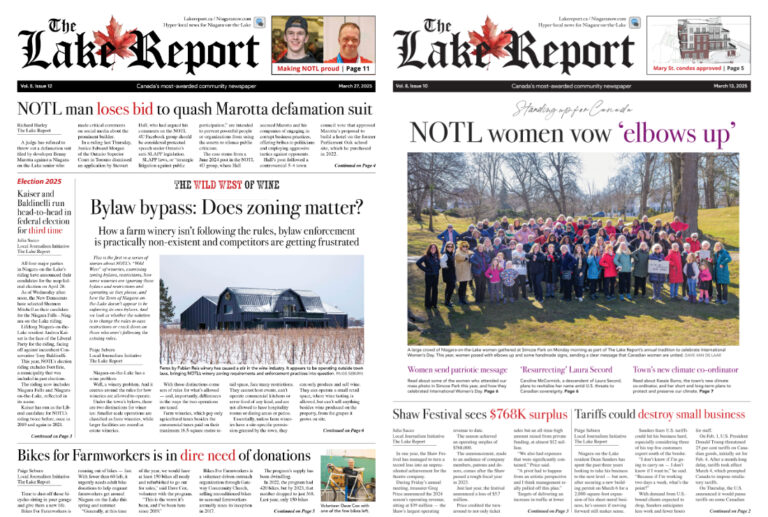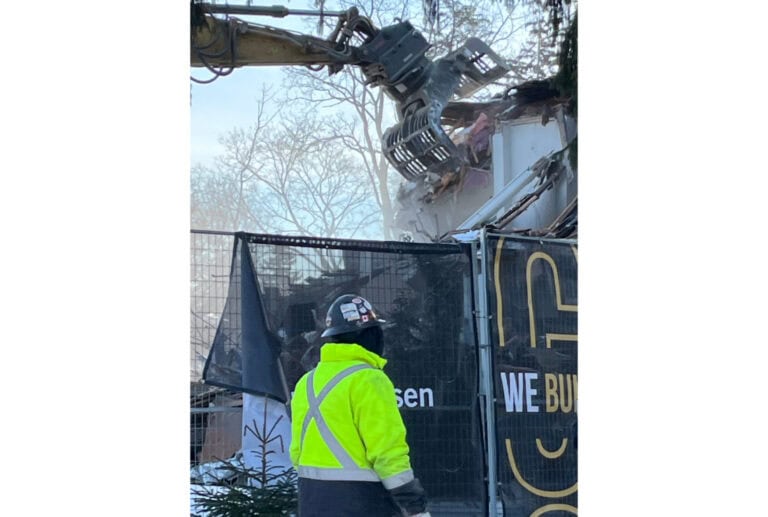Steve McGuinness
Special to Niagara Now/The Lake Report
Paying taxes is an obligation of citizenship. Ontarians pay income, sales, payroll, excise and property taxes to four levels of government. At least two government budgets — federal and town — will be released soon. Let’s get a head start by previewing what to expect.
The delayed federal budget cycle has now pushed back delivery to fall from spring. New Prime Minister Mark Carney promises a more business-like approach. He promises to separate out capital expenditures from operating costs. Operating costs are recurring expenses to keep government operations running and to meet ongoing commitments. Capital expenditures are one-time costs to create assets that produce enduring, longer-term benefits.
The growth in operating costs will be much more tightly controlled under Carney than Justin Trudeau. However, no cuts to programs delivering transfers to individuals or provinces, funding health care, are expected. Five million Canadians belong to the Canada dental care plan already. Many young families are also benefitting from $5 a day childcare (Doug Ford’s botched Ontario rollout notwithstanding).
Carney has already committed to continue the new school food program and to accelerate delivery of an automatic tax filing program for low-income earners.
Canada will continue to post one of the lowest national debt to GDP ratios in the industrialized world, despite borrowing to invest significantly in: nation-building infrastructure projects, a new crown corporation to increase affordable housing supply, and strengthening our military.
At the town level, our budget will materialize on a more accelerated and abbreviated schedule this year, courtesy of Doug Ford imposing “strong mayor powers.”
After the federal election, we received a “middle-class” tax cut. This term’s NOTL council, in contrast, has imposed property tax hikes exceeding general inflation rates and those in surrounding municipalities. These large increases have proven excessive to meet actual costs incurred.
Our treasury department has underestimated revenues by $20.5 million total in its budget projections the last two years. The town has added $16.4 million to its accumulated surplus since 2022, with $12.9 million of that parked in financial assets, unused to purchase tangible assets. $12.6 million has been added to a laundry list of special reserves. Municipal accommodation tax revenues have surged.
The lord mayor and some councillors defend this padding as prudent to redress a perceived infrastructure deficit. But what will these reserves actually be spent on? Half a million was earmarked for legal contingencies. We blew through that in settling two recent lawsuits for $1.2 million. Meanwhile, an indoor pool — a much-needed amenity — is unlikely to make the cut. The current draft of our parks and recreation plan turns a deaf ear to local aquatic supporters.
Perhaps a generous benefactor will seed our aquatics centre? Rule out wealthy developer Rainer Hummel. He’s already committed the $1 million reward he received for suing his town to rescuing the David Secord home and perceives it as a just penalty for voters electing councillors who won’t rubber-stamp his developments (“Letter: Deliberate actions of council led to lawsuits,” Oct. 9). These elites fly south to swim in winter.
In his Bay Street career, Steve McGuinness was a senior advisor to large financial institutions and is now retired in NOTL. Send your personal financial planning questions to him at smcgfinplan@gmail.com.










